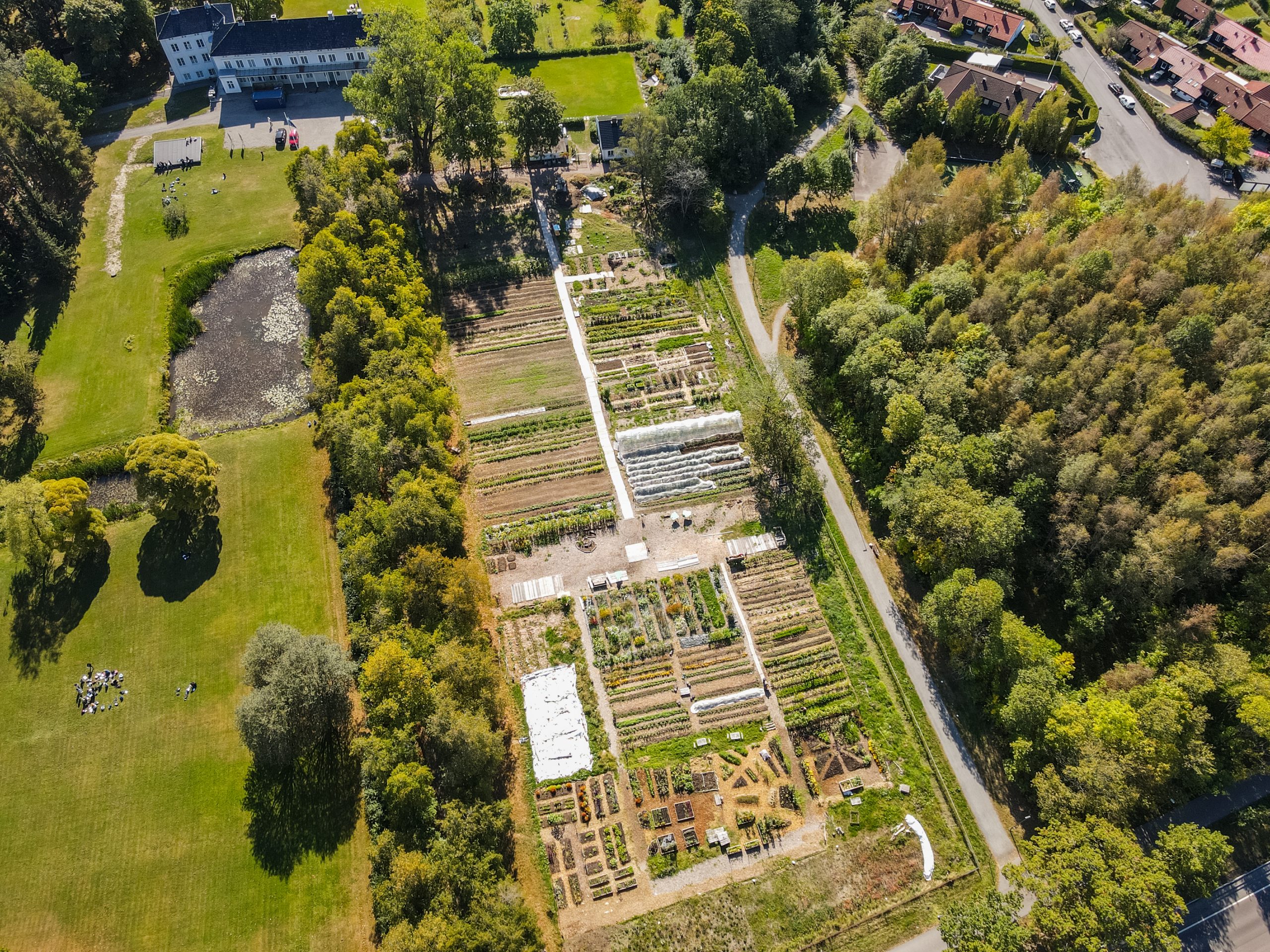Vision Workshop at the Living Lab in Oslo
On the 30th of September Kim Weger and Laura Martinez from Nabolagshager together with Vebjørn Stafseng from the Norwegian University of Life Sciences facilitated a vision workshop for the City Team of the Living Lab in Oslo – the Linderud community garden.
The EdiCitNet project has been central for the establishment of Linderud community garden and its operation and development since 2020. Nowadays the community garden is in a process of change since the EdiCitNet project is coming to an end. Developing a common desired future for the community garden will help the city team in Oslo to begin thinking about the steps needed to get there and to build wider ownership of the place.
During the workshop each City Team member was asked to share how they wanted the community garden to look like in 2027. To achieve the joint future vision, participants were guided through an exercise, a mental journey, by the facilitators using different tools such as dialogue and drawing. First, all the participants shared their individual vision in small groups, and when they reached an agreement, each group presented their shared vision to everyone. The facilitators had a large sheet of paper where they wrote down the main ideas that were presented and made an attempt to create a drawing of the common future vision for the garden.
Based on the common vision, participants were asked to think about what resources and stakeholders they would need to make this vision happen in reality. Resources are any ‘thing’ that they need to use to maintain or bring them towards achieving their values. Resources can be physical resources like soil and tools, a kitchen space, or funding, or non-physical resources such as new skills, knowledge, or volunteer support. Stakeholders are all of the people who are affected by or have power over affecting the project, and they can be negative or positive. To help them to map these resources and stakeholders, participants reflected individually, and wrote their answers on sticky notes.
This shared vision, together with the resources/stakeholders mapping, will form the basis for the development of a detailed action plan which will include the most important steps to take in the near future to move towards the vision.




